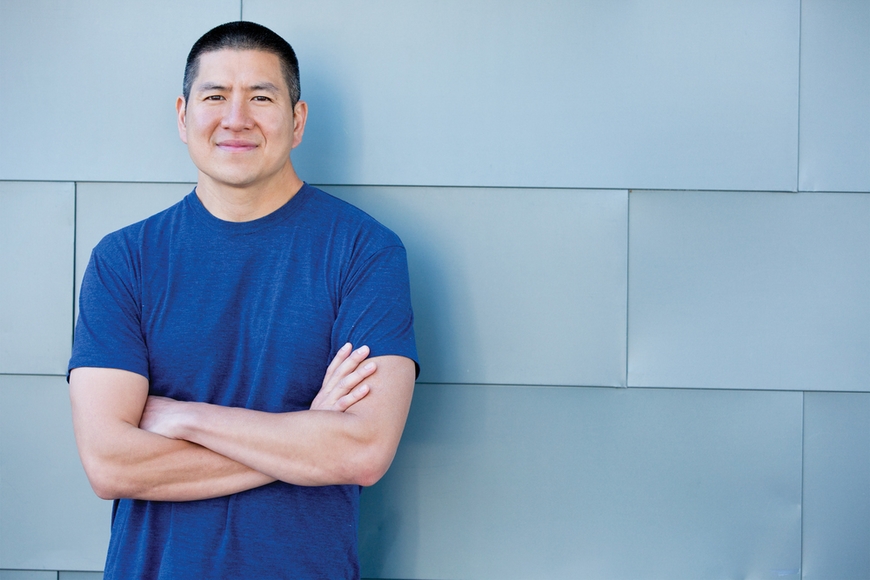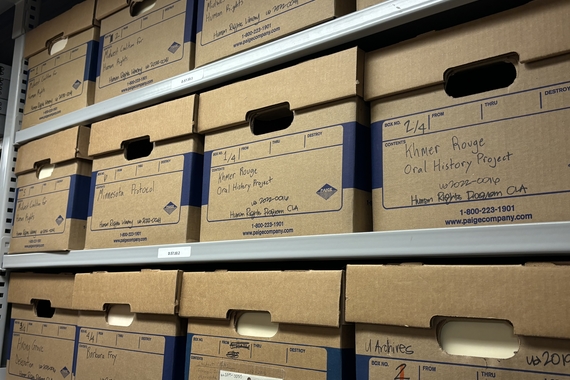Cambodian Americans and the Myth of Refugee Resettlement
‘Reparations’ is a touchy word, but someone had to say it. “The U.S. owes reparations to Cambodian refugees,” Eric Tang said frankly. The claim was well-backed by Tang’s slideshow which featured a combination of dismal statistics on Cambodian refugees’ lack of upward mobility, newspaper clippings displaying problematic perceptions of refugees by the broader American public, and a gut-wrenching photo of a Bronx “hyperghetto”— urban spaces full of abandoned buildings lacking essentials such as heating and hot water, often ruled by informal economies such as the drug trade. Members of the audience, largely made up of community members, university students and faculty, stared attentively. Some nodded in agreement.
On the evening of Tuesday, February 6, Eric Tang, the former community organizer turned professor, discussed his book Unsettled: Cambodian Refugees in the NYC Hyperghetto. Tang’s visit was part of the “Seeking Refuge in a Changing World” series, a collaborative project that investigates a world of people in flux. The book talk set the stage for a conversation with representatives from the Release the Minnesota 8 campaign, a group of activists working to raise awareness of, and advocate for, eight Cambodian Americans from Minnesota who were detained by Immigration and Customs Enforcement (ICE) in August of 2016.
During the lecture portion of the event, Tang retraced the history of Cambodian refugee settlement in the United States. He made it clear that the United States was complicit in the displacement of Cambodians—not only did it initiate a four year-long carpet-bombing campaign that devastated millions of Cambodians, but it also supported the genocidal Khmer Rouge. After President Carter signed off on the 1980 Refugee Act, more than 150,000 Cambodian refugees resettled in the United States. More than half of these refugees were placed in the poorest inner-city neighborhoods, such as the “hyperghettos” of New York City, which were quickly treated as locations of stigma and ostracization.
Life did not improve much for many Cambodians in the Bronx. In 2000, 42.8 percent lived in poverty, 23.9 percent were unemployed, and 80 percent were on welfare. Tang used the concept of refugee exceptionalism to explain the vicious cycle that continues to trap Cambodian Americans today. The perceived temporality of their living situation justifies the harsh treatment of the hyperghetto. Far from resembling a model minority, Cambodian refugees and their families struggle to obtain upward mobility, despite having lived in the United States for more than three decades.

The last couple years have seen attempts by the United States government to deport some of these Cambodian refugees. Of the previously mentioned eight Minnesotans of Cambodian descent that were detained by ICE in 2016, all were refugees who arrived as children. Most of them had never set foot on Cambodian soil. In their youth, all had committed crimes considered worthy of expulsion, however they were never deported due to the United States’ messy diplomatic relations with Cambodia.
The Release the Minnesota 8 campaign came together in response to the detainment of the eight individuals, an effort spearheaded by loved ones of those detained. The conversation that followed Tang’s talk included a group of activists involved with the campaign, as well as two of the former detainees themselves (three of the detainees were released, however five were deported to Cambodia). Both men recounted the gut-wrenching feeling of speaking to their families behind glass, being shipped from one cell to another across the United States, and mentally preparing for the worst case scenario. On the other side, their loved ones recalled the struggle to balance keeping their lives together while organizing a fierce advocacy campaign. The experience impacted each person differently, but all illustrated the brokenness and cruelty of the United States immigration system.
Members of Release the Minnesota 8 concluded their discussion with one important message: the fight to end deportations must continue, through advocacy networks, community organization, and resilience. Furthermore, the United States government must do its part in protecting and providing reparations to the very families they uprooted decades ago.
The next event in the Seeking Refuge series features Michael Rothberg (UCLA) considering immigrants’ engagement with the Holocaust in contemporary Germany and examining what lessons the events of the Holocaust might bear for a moment in which far-right political movements are once again on the rise. Please join us for this timely discussion at 4 pm on Tuesday, March 6 in 120 Andersen Library. Additionally, save the date of April 19 for our concluding event of The Seeking Refuge series, a day long symposium featuring panels on refugee resettlement, climate change and migration, and Islamophobia. The symposium will also feature keynote Professor Maria Cristina Garcia (Cornell) discussing her study of the actors and interests that have shaped US refugee policy in the Post-Cold War and post 9/11 era.



